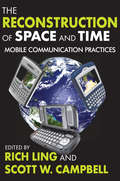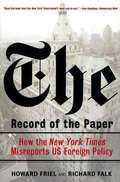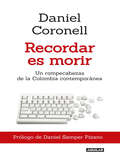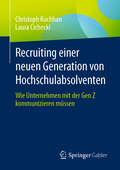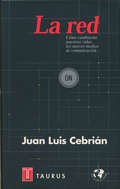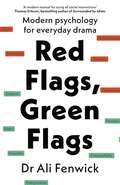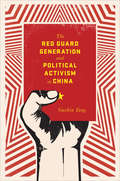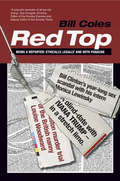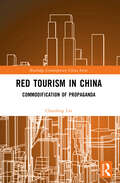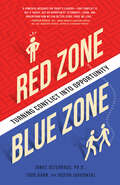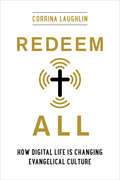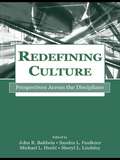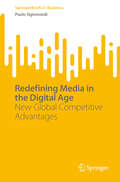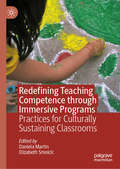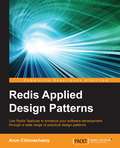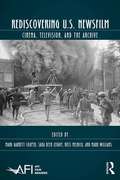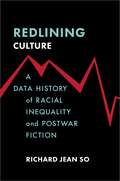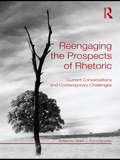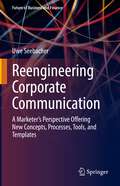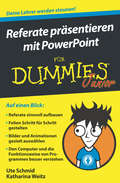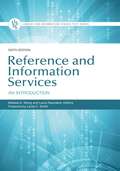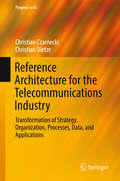- Table View
- List View
The Reconstruction of Space and Time: Mobile Communication Practices
by Rich LingOne of the most significant and obvious examples of how mobile communication influences our understanding of time and space is how we coordinate with one another. Mobile communication enables us to call specific individuals, not general places. Regardless of location, we are able to make contact with almost anyone, almost anywhere. This advancement has changed, and continues to change, human interaction. Now, instead of agreeing on a particular time well beforehand, we can iteratively work out the most convenient time and place to meet at the last possible moment--on the way to the meeting or once we arrive at the destination.In their early days, mobile devices were primarily used for various types of emergency situations and for work. In some cases, the device was an essential element in various business operations or used so that overseas workers could communicate with their families. The distance between a remote posting and the people back home was suddenly and dramatically reduced. People began to share these devices not necessarily out of economic issues, but also questions of family and interpersonal dynamics.The process of sharing decisions as to who is a legitimate partner makes the nature of relationships more explicit. By examining the economy of sharing, we not only see how sharing mobile phones restructures social space, but are also given insight into an individual's web of interactions. This cutting-edge book deals with modern ways of thinking about communication and human interaction; it will illuminate the ways in which mobile communication alters our experience with space and time.
The Record Of The Paper: How The New York Times Misreports U.S. Foreign Policy
by Howard Friel Richard FalkOn May 26, 2004, the New York Times issued an apology for its coverage of Iraq's purported weapons of mass destruction. The Times had failed to provide what most readers expect from the US newspaper of record: journalistic accuracy and integrity about important matters of US foreign policy. But the Times' coverage of Iraq was worse than they were willing to concede. In fact, for at least the past fifty years the editorial policy of the Times--from its coverage of the 1954 Geneva Accords on Vietnam to the issue of torture in Abu Ghraib--has failed to incorporate international law into its coverage of US foreign policy. This lapse, as the authors demonstrate, has profound implications for the quality of the Times' journalism and the function of the press in a country supposedly governed by the rule of law. In this meticulously researched study, Howard Friel and Richard Falk reveal how the Times has consistently misreported major US foreign policy issues, including the bombing of North Vietnam in response to the Tonkin Gulf and Pleiku incidents in 1964-65, the Reagan administration's policy toward the Sandinista government of Nicaragua in the 1980s, the 2002 military coup that briefly overthrew Hugo Chavez, Venezuela's elected president, and the Bush administration's 2003 invasion of Iraq.
Recordar es morir: Un rompecabezas de la Colombia contemporánea
by Daniel Alfonso Coronell CastañedaUna antología de las mejores columnas de Daniel Coronell. "Recordar es morir reúne los mejores trabajos de Daniel Coronell para su columna de la revista Semana. Con temas como Agro Ingreso Seguro, Saludcoop, la Yidispolítica, las Chuzadas del DAS y el Palacio de Justicia, entre otros, el autor introduce a los lectores en la labor del periodista investigativo, revelando, por primera vez, detalles de cómo realiza su trabajo, el detrás de cámaras de sus pesquisas, así como su forma de entender y ejercer el periodismo. Muchos reprocharán a Coronell que se ocupe de la podredumbre nacional y no de ?tantas cosas buenas y bonitas que tiene nuestro lindo país. No es esa su misión. La suya consiste en destapar los abusos, única manera de poder corregirlos, así como el médico, para recobrar la salud del paciente, debe diagnosticar primero la enfermedad. Por eso insisto en que este no es un libro de recuerdos. Es una gran colonoscopia de la política colombiana". Daniel Samper Pizano
Recruiting einer neuen Generation von Hochschulabsolventen: Wie Unternehmen mit der Gen Z kommunizieren müssen
by Christoph Kochhan Laura CicheckiDieses Buch geht der Frage nach, wie Unternehmen Hochschulabsolventen aus der Generation Z gezielt ansprechen können, um sie als Mitarbeitende zu gewinnen. Die um die Jahrtausendwende geborene Gen Z gilt als idealistisch und durch Haltung getrieben, zuweilen aber auch als wählerisch, unmotiviert und sprunghaft; ein Job fürs Leben ist nur für die wenigsten der aktuellen Absolventen vorstellbar. Unternehmen müssen jedoch weiterhin Nachwuchs rekrutieren, um erfolgreich und produktiv zu bleiben, – aber sind sie auf die neuen Vorstellungen und Ansprüche der Gen Z vorbereitet? Das Autorenteam beantwortet in diesem Buch auf Basis einer umfassenden qualitativen Studie mit Studierenden und Unternehmensvertretern in der DACH-Region folgende Fragen: Wie erreichen Arbeitgeber die neue Generation der Hochschulabsolventen? Was macht erfolgreiches Personalmarketing in der Praxis heutzutage aus? Und: Wie wird sich die Arbeitswelt weiterentwickeln? Außerdem: Jo Dietrich, Co-Founder der Gen-Z-Agentur ZEAM, erläutert im Interview, wie Arbeitgebermarken für die Gen Z attraktiv werden, und gibt Praxistipps für u. a. Recruiting, Bewerbungsprozess sowie Social-Media-Auftritt.
Rectenna: Wireless Energy Harvesting System (Advances in Sustainability Science and Technology)
by Binod Kumar Kanaujia Neeta Singh Sachin KumarThis book covers the theory, modeling, and implementation of different RF energy harvesting systems. RF energy harvesting is the best choice among the existing renewable energy sources, in terms of availability, cost, size, and integration with other systems. The device used for harvesting RF energy is called rectenna. A rectenna can work at the microwave, millimeter-wave, and terahertz waves. It also has the capability to operate at optical frequencies to be used for 6G and beyond communication systems. This book covers all aspects of wireless power transfer (WPT)/wireless energy harvesting (WEH), basics, theoretical concepts, and advanced developments occurring in the field of energy harvesting. It also covers the design theory for different types of antenna, rectifier, and impedance matching circuits used in RF energy harvesting systems. Different future and present applications, such as charging of vehicles, smart medical health care, self-driven e-vehicles, self-sustainable home automation system, and wireless drones, have also been discussed in detail.
La red
by Juan Luis CebriánCómo cambiarán nuestras vidas los nuevos medios de comunicación. Esta obra constituye un esfuerzo de divulgación sobre el significado e impacto en nuestras vidas de la llamada sociedad digital. Internet, la televisión temática vía satélite, las innovaciones en educación, medicina y economía, los nuevos medios de comunicación son algunos de los temas aquí tratados. Las consecuencias de su implantación acelerada se dejarán sentir en todos los ámbitos: las relaciones familiares, el comportamiento psicológico de las personas, la organización política, el mundo de los negocios y del comercio, nuestra manera de trabajar y de divertirnos, van a verse modificados sustancialmente. En un lenguaje asequible para los no iniciados, sin apearse del rigor científico, La red abre un debate fundamental: ¿estamos ante un cambio de civilización?
Red Flags, Green Flags: Modern Psychology for Everyday Drama
by Dr Ali Fenwick‘A MODERN MANUAL FOR ACING ALL SOCIAL INTERACTIONS THAT WILL TEACH YOU HOW TO HANDLE THE TRICKIEST OF PEOPLE AND SITUATIONS' THOMAS ERIKSON, BESTSELLING AUTHOR OF SURROUNDED BY IDIOTS Discover the tools to identify healthy and toxic behaviours in all areas of life and separate the red flags from the green, from TikTok psychologist Dr Ali Fenwick---CRACK THE BEHAVIOURAL CODE BEHIND EVERYDAY DRAMAIs there a situation(ship) you can’t find your way out of?Do you wish you could spot toxic friendships from afar?Or maybe you feel like you’ve had enough of some people, but struggle to set boundaries?From gaslighting crushes and pushy parents to bosses that take credit for your work, Red Flags, Green Flags will transform how you interpret and handle any situation, leading you straight into a fuss-free existence.An internationally renowned psychologist and behavioural expert Dr Ali Fenwick is here to guide you through the most crucial red and green flags – unhealthy and healthy social conduct – and equip you with the psychological explanation behind each one. Improve your emotional intelligence and learn how to understand your own needs and expectations when it comes to relationship building.
The Red Guard Generation and Political Activism in China (Studies of the Weatherhead East Asian Institute, Columbia University)
by Guobin YangRaised to be "flowers of the nation," the first generation born after the founding of the People's Republic of China was united in its political outlook and at first embraced the Cultural Revolution of 1966, but then split into warring factions. Investigating the causes of this fracture, Guobin Yang argues that Chinese youth engaged in an imaginary revolution from 1966 to 1968, enacting a political mythology that encouraged violence as a way to prove one's revolutionary credentials. This same competitive dynamic would later turn the Red Guard against the communist government.Throughout the 1970s, the majority of Red Guard youth were sent to work in rural villages, where they developed an appreciation for the values of ordinary life. From this experience, an underground cultural movement was born. Rejecting idolatry, these relocated revolutionaries developed a new form of resistance that signaled a new era of enlightenment, culminating in the Democracy Wall movement of the late 1970s and the Tiananmen protest of 1989. Yang's final chapter on the politics of history and memory argues that contemporary memories of the Cultural Revolution are factionalized along these lines of political division, formed fifty years before.
Red Top: Being a Reporter - Ethically, Legally and with Panache
by Bill ColesRed Top has everything an aspiring reporter needs to know about newspaper journalism. Written in easily digestible bite-size chapters, the book is packed with extraordinary stories that explain what it's really like to be a front-line reporter. Included is a full breakdown on the two key skills of how to interview and how to dig up exclusives. Plus tips on dealing with the mad-masters, the editors; writing a news story; and what the hell to do when a libel writ comes thudding onto your desk.Bill Coles has been a journalist for 25 years and was The Sun's New York Correspondent, Political Correspondent and Royal Reporter. He has written for a huge variety of papers from The Wall Street Journal to the Mail, the Scotsman and Prima Baby Magazine.He has also covered some of the world's biggest news stories - as well as some of the most bizarre --Bill Clinton's year-long sex scandal with his intern Monica Lewinsky.-The Boston murder trial of the British nanny Louise Woodward (with five Sun front pages in a row).-Buying $10,000 of lottery tickets in Miami-A blind-date with Ivana Trump - in a stretch limo.-Becoming one of Company magazine's Bachelors of the Year.-Flying from New York to the Inca trail in Peru - to eat a giant guinea-pig.-Posing naked for a Sun centrefold - with nothing but a copy of The Sun to hide his modesty.
Red Tourism in China: Commodification of Propaganda (Routledge Contemporary China Series)
by Chunfeng LinThis book analyzes the phenomenally profitable “Red Tourism” industry in China, in which visitors make pilgrimages to sites of historical significance to the Communist Party of China and the Chinese Revolution. The book examines Red Tourism in connection with the transforming power relations between the state and the private, communication in the socialist past, and the current round of capitalization, against the backdrop of the world’s second largest economy. By re-evaluating the conventional notion of propaganda through the lens of neutral xuanchuan propaganda, the book presents a nuanced look at the social space of Red Tourism, revealing that propaganda should be conceived as a commodity, an industry, or even a media system similar to the news media. Drawn from combining fieldwork and cultural analysis spanning a decade, this book will be of interest to students and scholars of communication studies, tourism, and Chinese politics.
Red Zone, Blue Zone: Turning Conflict into Opportunity
by James Osterhaus Joseph Jurkowski Todd HahnMost of us fear and dread conflict, at home or at work. But conflict can be your ally, not your enemy. Conflict doesn’t have to tear your family or organization apart.Using the story of a family business leader embroiled in generational conflict, Red Zone, Blue Zone shows how to navigate conflict in a way that is healthy and leads to enhanced relationships, self-awareness, and greater leadership success. Practical response activities and personal reflection questions help the reader understand the sources of conflict, have a working command of conflict navigation principles, and be equipped to help others navigate conflict in their own lives.In Red Zone, Blue Zone readers will learn skills such as:Questioning, ListeningPacingReframing
RedakBot
by Ramón KadelDer Journalismus ist im Wandel – nicht nur aufgrund des Medienstrukturwandels durch Digitalisierung und Internet, sondern auch aufgrund neuer Technologien, die erstmals sogar ein Stück weit die Existenzberechtigung des Berufsbilds infrage stellen. Werden Journalisten also durch künstliche Intelligenz ersetzt? Nein! Denn KI im Journalismus ist ein „Frenemy“: Freund und Feind zugleich. Freund, wenn man sich auf den KI-Journalismus vorbereitet, Feind für diejenigen, die ihr Mindset nicht ändern können und die neuen Technologien ausschließlich als Bedrohung sehen. Mit der Lektüre dieses Buches sollen Journalisten und Redakteure sowie Volontäre und Studenten im Bereich der Kommunikationswissenschaften konkrete Ideen im Kopf haben, wie sie sich auf die Zeit des KI-Journalismus erfolgreich vorbereiten. Es regt an, innovativ zu sein, und von den neuen Möglichkeiten, die redaktionelle Bots bieten, zu partizipieren – und schließlich zu profitieren. Die Frage ist nicht, ob „RedakBots“ unsere Arbeitswelt verändern, sondern wann dies passiert. Das Buch bereitet darauf vor.
Redeem All: How Digital Life Is Changing Evangelical Culture
by Corrina LaughlinRedeem All examines the surprising intersection of American evangelicalism and tech innovation. Corrina Laughlin looks at the evangelical Christians who are invested in imagining, using, hacking, adapting, and creating new media technologies for religious purposes. She finds that entrepreneurs, pastors, missionaries, and social media celebrities interpret the promises born in Silicon Valley through the framework of evangelical culture and believe that digital media can help them (to paraphrase Steve Jobs) put their own dent in the universe. Laughlin introduces readers to "startup churches" hoping to reach a global population, entrepreneurs coding for a deeper purpose, digital missionaries networking with mobile phones, and Christian influencers and podcasters seeking new forms of community engagement. Redeem All reveals how evangelicalism has changed as it eagerly adopts the norms of the digital age.
Redefining Culture: Perspectives Across the Disciplines (Routledge Communication Series)
by John R. Baldwin Sandra L. Faulkner Michael L. Hecht Sheryl L. LindsleyRedefining Culture: Perspectives Across the Disciplines argues that culture is one of the most important factors we need to know when we interact as well as in our discussions of social problems and their solutions. This book picks up the dialogue where Kroeber and Kluckhohn left off in their classic 1952 collection and analysis of definitions of culture. As a resource for personal and academic libraries, this volume provides an updated listing of over 300 definitions of culture from a wide array of disciplines. Chapters examine how the definition of culture has changed historically, consider themes that cut across the definitions, and provide models for organizing approaches to defining culture. To round out this multi-disciplinary perspective, Renato Rosaldo provides a foreword, and prominent authors from six disciplines write about how they conceptualize culture and use it in their research and practice. This resource is an indispensable reference for scholars studying or integrating culture into their work. It will appeal to anyone interested in culture, particularly students and scholars in anthropology, intercultural and international communication, cultural studies, cultural and social psychology, linguistics, sociology, family studies, political science, intergroup relations, cultural geography, and multicultural education.
Redefining Media in the Digital Age: New Global Competitive Advantages (SpringerBriefs in Business)
by Paolo SigismondiThe global rise of streaming and social media platforms, and the influence of tech giants in increasingly more sectors of the economy including the media industry, have disrupted the status quo of the global media competitive landscape. This volume offers an insightful analysis of the profound changes in the competitive advantages in the media industry ushered in by digital convergence, and their ramifications. As Hollywood enters its second century, it faces novel challenges stemming from the digital revolution, which are greater, in magnitude and in impact, than any of those brought in by previous communication technology revolutions in the last century. These new challenges include the ascent of new competitors, leading conglomerates arising from the digital revolution, which as a result of the ever-expanding reach of digital convergence are successfully operating in the media sector as well. The new competitive dynamics are on display in the analysis of the streaming and social media landscapes. This book sheds light on the clash of two institutional logics within the new attention economy and its consequences on the competitive landscape. The legacy media institutional logics, represented by the legacy media conglomerates revolving around the Hollywood studios, which have established their primacy in the global mediascape for decades, now directly compete in the new landscape shaped by digital convergence with the digital media institutional logics identifying the tech giants emerging victorious from the digital revolution. The analysis utilizes the dichotomy between scripted and non-scripted media entertainment as a framework to assess the diverse competitive landscapes, business dynamics and their implications, of the different segments shaping the contours and boundaries of the media industry.
Redefining Teaching Competence through Immersive Programs: Practices for Culturally Sustaining Classrooms
by Daniela Martin Elizabeth SmolcicThis edited book examines how teacher education utilises international immersion and field teaching (or service-learning) experience to develop teachers’ global, multilingual and intercultural competencies, in preparation for entering today’s culturally and linguistically diverse classrooms. Through a series of theory-based case studies, the authors demonstrate how teachers’ awareness of social inequities and responsive actions, the ability to bridge one’s own and others’ perspectives, and understanding of key principles of second language learning are pedagogical concepts and skills that become ever more essential across all mainstream K-12 educational contexts. The chapters bring together the voices of teacher educators, intercultural learning theorists and pre- and in-service teachers to identify threads of practice and theory that can be applied within teacher education more broadly. This book will be of interest to academics, instructors and graduate students in the fields of teacher education, language learning, intercultural communication and social justice education.
Redis Applied Design Patterns
by Arun ChinnachamyWith new data stores making their way onto the market, it's necessary for businesses to understand the features and techniques to use data stores most effectively. Redis Applied Design Patterns is designed to guide you into the world of Redis and will help you understand how business problems can be solved using Redis in your application stack. This book introduces you to the NoSQL way of thinking and how it is different from SQL. It helps you understand various functionality of Redis through a series of use cases designed for you to learn the more complex and less well-known features of Redis in an incremental way. By the time you've read this book, you will be capable of designing a system using Redis. This book will guide you through various use cases along with code samples, easy-to-understand diagrams, and tips to help you take advantage of Redis. The book explains the benefits of adding Redis to the application stack and discusses various practical use cases for Redis such as the caching system, commenting system, and social networking.
Rediscovering the Islamic Classics: How Editors and Print Culture Transformed an Intellectual Tradition
by Ahmed El ShamsyThe story of how Arab editors of the late nineteenth and early twentieth centuries revolutionized Islamic literatureIslamic book culture dates back to late antiquity, when Muslim scholars began to write down their doctrines on parchment, papyrus, and paper and then to compose increasingly elaborate analyses of, and commentaries on, these ideas. Movable type was adopted in the Middle East only in the early nineteenth century, and it wasn't until the second half of the century that the first works of classical Islamic religious scholarship were printed there. But from that moment on, Ahmed El Shamsy reveals, the technology of print transformed Islamic scholarship and Arabic literature.In the first wide-ranging account of the effects of print and the publishing industry on Islamic scholarship, El Shamsy tells the fascinating story of how a small group of editors and intellectuals brought forgotten works of Islamic literature into print and defined what became the classical canon of Islamic thought. Through the lens of the literary culture of nineteenth- and twentieth-century Arab cities—especially Cairo, a hot spot of the nascent publishing business—he explores the contributions of these individuals, who included some of the most important thinkers of the time. Through their efforts to find and publish classical literature, El Shamsy shows, many nearly lost works were recovered, disseminated, and harnessed for agendas of linguistic, ethical, and religious reform.Bringing to light the agents and events of the Islamic print revolution, Rediscovering the Islamic Classics is an absorbing examination of the central role printing and its advocates played in the intellectual history of the modern Arab world.
Rediscovering U.S. Newsfilm: Cinema, Television, and the Archive (AFI Film Readers)
by Mark Garrett Cooper Sara Beth Levavy Ross Melnick Mark WilliamsThe twentieth century generated tens of thousands of hours of American newsfilm but not the scholarly apparatus necessary to analyze and contextualize them. Assembling new approaches to the study of U.S. newsfilm in cinema and television, this book makes a long overdue critical intervention in the field of film and media studies by addressing the format’s inherent intermediality; its mediation of "events" for local, national, and transnational communities; its distinctive archival legacies; and, consequently, its integral place in film and television studies more broadly. This collection brings fresh, contemporary methodologies and analysis to bear on a vast amount of material that has languished in relative obscurity for far too long.
Redlining Culture: A Data History of Racial Inequality and Postwar Fiction
by Richard Jean SoThe canon of postwar American fiction has changed over the past few decades to include far more writers of color. It would appear that we are making progress—recovering marginalized voices and including those who were for far too long ignored. However, is this celebratory narrative borne out in the data?Richard Jean So draws on big data, literary history, and close readings to offer an unprecedented analysis of racial inequality in American publishing that reveals the persistence of an extreme bias toward white authors. In fact, a defining feature of the publishing industry is its vast whiteness, which has denied nonwhite authors, especially black writers, the coveted resources of publishing, reviews, prizes, and sales, with profound effects on the language, form, and content of the postwar novel. Rather than seeing the postwar period as the era of multiculturalism, So argues that we should understand it as the invention of a new form of racial inequality—one that continues to shape the arts and literature today.Interweaving data analysis of large-scale patterns with a consideration of Toni Morrison’s career as an editor at Random House and readings of individual works by Octavia Butler, Henry Dumas, Amy Tan, and others, So develops a form of criticism that brings together qualitative and quantitative approaches to the study of literature. A vital and provocative work for American literary studies, critical race studies, and the digital humanities, Redlining Culture shows the importance of data and computational methods for understanding and challenging racial inequality.
Reengaging the Prospects of Rhetoric: Current Conversations and Contemporary Challenges
by Mark J. PorrovecchioReengaging the Prospects of Rhetoric reanimates the debate over the function and scope of rhetoric. Providing a contemporary response to the volume The Prospect of Rhetoric (1971), this volume reconceptualizes that classic work to address the challenges facing the study of rhetoric today. With contributions from today’s leading rhetorical scholars, Reengaging tje Prospects of Rhetoric offers "response" essays to each chapter of the original work. Each scholar uses his/her essay as a forum in which to address three questions: As a historical document, why is this essay important? In terms of contemporary theory and/or practice, what is the significance of the essay? How can the issues raised therein be profitably addressed in the future? These provocative engagements suggest that, while the study of rhetoric has gained much ground in the intervening decades, there is more work to be done to reestablish the primacy of rhetoric in contemporary society. This volume provides students and scholars of rhetoric with a strong foundation in the issues that have shaped contemporary rhetorical theory and criticism. It offers them an accessible introduction to the challenges facing future iterations of rhetorical theory and criticism. As a standalone text or a supplemental resource for undergraduate and graduate courses in the history, theory, and criticism of rhetoric or contemporary rhetorical theory, it will help to shape rhetoric’s future role in communication studies and will foster interdisciplinary dialogues about the topic.
Reengineering Corporate Communication: A Marketer’s Perspective Offering New Concepts, Processes, Tools, and Templates (Future of Business and Finance)
by Uwe SeebacherThis book employs the latest insights from modern marketing into the theory and practice of corporate communication, including the main stages and goals, and highlights the key potentials for the field. It briefly presents the essential features of the methodological and structural sciences in order to illustrate to the reader how, from a marketer's point of view, these new insights can be derived objectively, reliably, and validly for the field of corporate communication according to scientific criteria. The book then introduces the maturity model for modern corporate communication and describes which fields of activity must be gone through in order to be able to implement the change management process towards corporate communication excellence efficiently and effectively. Building on this, it introduces and defines the most important new concepts of corporate communication in the twenty-first century and thus clearly delineates the field of research for this corporate function in the coming years. The book goes on to address the important areas of IT and HR in order to provide a 360° view of the developments to be realized in the field of corporate communication. A “CC self-test” at the end of the book is intended to help the reader immediately recognize where their own organization stands and, against this backdrop, to be able to start the necessary activities towards corporate communication excellence immediately on the basis of the maturity model. “Prof. Dr. Uwe Seebacher takes us on a timely and informative read on what could be the biggest crisis for Corporate Communications – remaining stagnant in a time of great change. With rich context and fine detail, he illuminates the opportunities to reengineer Corporate Communications and quantify its role in truly impacting business. From the importance of predictive intelligence underpinned by authenticity and empathy to building trust, this book is a guide for successful business in the 21st Century. I highly recommend it.”Heidi Eusebio, Strategist and Executive Director, Edelman "Uwe Seebacher has once again demonstrated in a well-founded manner what methodological and structural science is capable of - namely, to precisely logically derive the long overdue process of change in the field of corporate communications and thereby make it comprehensible. But he also takes the important next step of operationalizing his thoughts in a directly measurable way by providing an easy applicable concrete process model for reengineering corporate communication with many tips, templates and inputs for HR and IT.“ Miguel Gimenez de Castro, Head Of Communications Spain, Portugal, Greece and Israel, IBM
Referate präsentieren mit PowerPoint für Dummies Junior (Für Dummies)
by Ute Schmid Katharina WeitzDu sollst ein Referat in der Schule halten und willst es richtig gut machen? Du hast schon mal in PowerPoint hineingeschaut, weißt aber nicht so genau, was man dort alles so machen kann? Du möchtest gern verstehen, wie der Computer arbeitet? Dann ist dieses Buch genau richtig für dich. Gestalte übersichtliche Folien, sodass dein Publikum schnell versteht, worum es geht. Wähle ein Design, erstelle Notizen, füge Bilder, Tabellen und Animationen ein. Finde heraus, wie Anwendersoftware aufgebaut ist und was du davon erwarten kannst. Bestens geeignet für Kinder und Jugendliche ab 10 Jahre. Du wirst von diesen Tipps und Techniken begeistert sein.
Reference and Information Services: An Introduction (Library and Information Science Text Series)
by Melissa A. Wong Laura SaundersThis new edition of the classic text Reference and Information Services has been thoroughly updated to reflect current information in the field.| This revised and updated sixth edition of Reference and Information Services continues the book's rich tradition, covering all phases of reference and information services with less emphasis on print and more emphasis on strategies and scenarios.| Reference and Information Services is the go-to textbook for MSLIS and i-School courses on reference services and related topics. It is also a helpful handbook for practitioners. Authors include LIS faculty and professionals who have relevant degrees in their areas and who have published extensively on their topics. ||The first half of the book provides an overview of reference services and techniques for service provision, including the reference interview, ethics, instruction, reader's advisory, and services to diverse populations including children. This part of the book establishes a foundation of knowledge on reference service and frames each topic with ethical and social justice perspectives. ||The second part of the book offers an overview of the information life cycle and dissemination of information, followed by an in-depth examination of information sources by types, including dictionaries, encyclopedias, indexes, and abstracts, as well as by broad subject areas including government, statistics and data, health, and legal information. This second section introduces the tools and resources that reference professionals use to provide the services described in the first half of the text.| | Reference and Information Services is a recognized textbook for information retrieval courses and updates the previous edition | Editors and contributors are experts in the field | Activity boxes engage readers and invite them to reflect on what they are learning and to practice skills through real-life exercises | Conscious integration of critical theory and social justice perspectives offers critical reflection on the standards and practices of the field and encourages readers to consider alternate perspectives
Reference Architecture for the Telecommunications Industry
by Christian Czarnecki Christian DietzeThis book reflects the tremendous changes in the telecommunications industry in the course of the past few decades - shorter innovation cycles, stiffer competition and new communication products. It analyzes the transformation of processes, applications and network technologies that are now expected to take place under enormous time pressure. The International Telecommunication Union (ITU) and the TM Forum have provided reference solutions that are broadly recognized and used throughout the value chain of the telecommunications industry, and which can be considered the de facto standard. The book describes how these reference solutions can be used in a practical context: it presents the latest insights into their development, highlights lessons learned from numerous international projects and combines them with well-founded research results in enterprise architecture management and reference modeling. The complete architectural transformation is explained, from the planning and set-up stage to the implementation. Featuring a wealth of examples and illustrations, the book offers a valuable resource for telecommunication professionals, enterprise architects and project managers alike.
